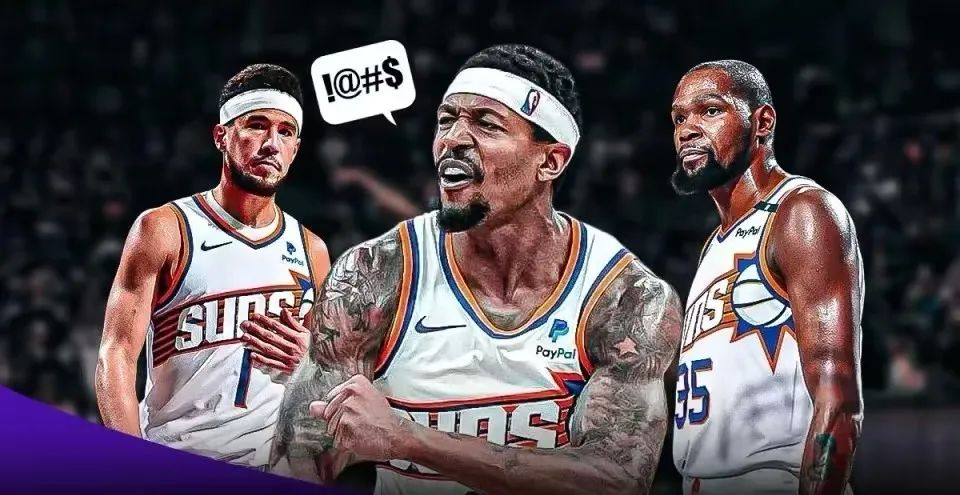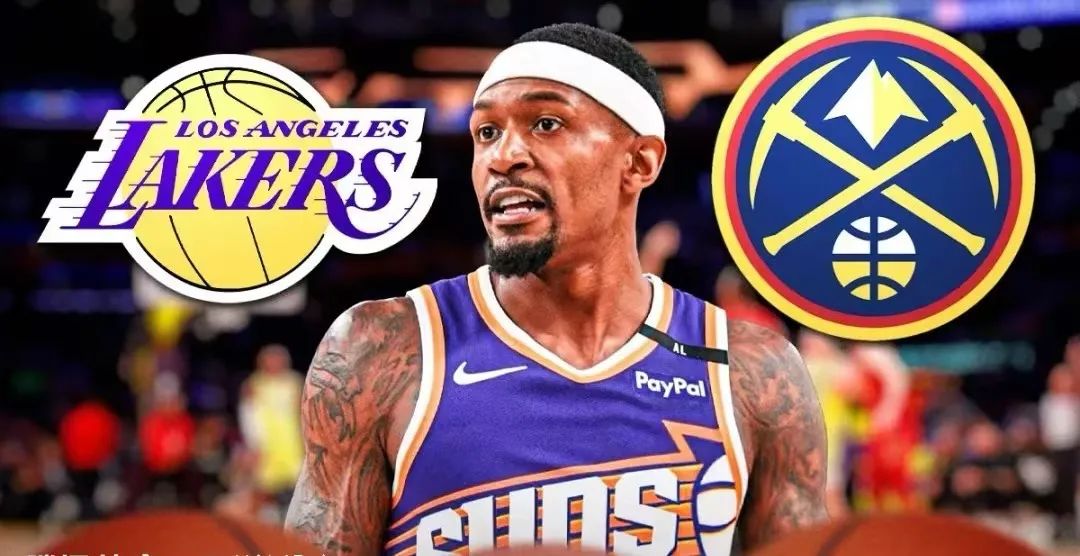Once the leader in Washington, now number six in Phoenix, we're talking about Bradley Beal. It's understandable that the Wizards gave Beal a $50 million annual salary, but giving him a transaction veto is a bit excessive. The Suns are also stubborn, able to take on such a challenge. When the three giants first came together, many people felt they were not compatible, and it turned out to be true.
Beal still has scoring ability, but he needs the ball in his hands. Among the three giants of the Suns, he is considered the weakest link. You can let him lead a struggling team without any problems, but going to a championship-contending team as a piece of the puzzle seems a bit off. The Suns demoted him to the bench to cool his face and make him proactively give up his transaction veto. Beal has also given in, but with a prerequisite condition, which is to go to one of the Clippers, Lakers, Nuggets, or Heat.

Recently, the Suns made a significant adjustment, demoting two main players, Bradley Beal and Jusuf Nurkic, to the bench, which has attracted widespread attention. Rookie Ryan Dunn and veteran Mason Plumlee have taken their place in the starting lineup, reflecting not only a shift in team tactics but also the management's thoughtful consideration for the team's future development.
As a former All-Star player, Beal's performance has always been highly anticipated. However, during his time with the Suns, his performance did not meet expectations. Frequent injury issues led to unstable playing time, and this season's average contribution of 17.8 points, 3.7 rebounds, and 3.1 assists has declined compared to previous seasons.

More worrying is that Beal's desire for victory seems less intense than his teammates, undoubtedly affecting team morale. More importantly, Beal has a transaction veto, which he has used multiple times in the past to block potential trade plans, conflicting with the management's expectations. Therefore, placing him on the bench is both feedback on his personal performance and an attempt to find a more suitable team chemistry.
Meanwhile, Nurkic's problems mainly lie in adaptability and efficiency. As an interior big man, his mobility is slow, offensive efficiency is low, and there are obvious deficiencies on the defensive end. Although he averages 8.8 points and 9.5 rebounds, these statistics are not enough to support the Suns' requirements for a starting center.

Therefore, replacing Nurkic with the more agile and mobile Plumlee became a reasonable choice. Plumlee can provide better support on defense, and his quick footwork can better coordinate with perimeter players for pick-and-roll plays, adding vitality to the entire offensive system.
Just when the outside world was speculating about the future of these two players, Beal opened up, saying that if the trading partner is any of the Clippers, Lakers, Nuggets, or Heat, he is willing to give up his transaction veto. This undoubtedly provides the Suns' management with more operational space.

Today, the Suns challenged the Philadelphia 76ers away, and in the game, Beal came off the bench for 30 minutes and performed exceptionally well. He went 10-for-15 from the field, 3-for-6 from beyond the arc, scoring 25 points, 3 rebounds, 5 assists, and 1 steal, with a plus-minus value as high as +14, the highest of the game.
This explosive performance not only helped the Suns defeat their opponents 109-99, ending a four-game losing streak, but also allowed people to see the enormous potential still lurking within Beal. Although he is currently still on the bench, his strength and form are still not to be underestimated.
For the Suns, how to better utilize Beal's potential will be a key issue they need to consider in upcoming games. For Beal personally, whether he can maintain such a state in future games will determine whether he can continue to write his own glorious chapter on the NBA stage.